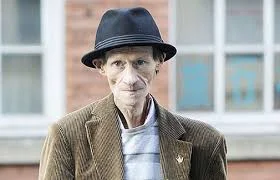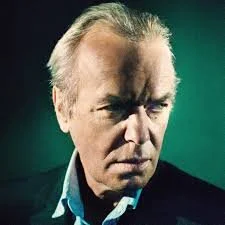Alex Higgins is dead
July 25, 2010
ALEX HIGGINS was finally found dead today. Cancer had already reduced him to a terrifying, translucent six-stone waif trying to survive in a Belfast bedsit on whisky, fags and baby food. The tributes describe him as a snooker genius who failed to conquer his demons, but in fact, demons were all he had. He was the sum total of his demons and nothing more. He was always already demonic, driven into the pool halls by something dark and reptilian and hypnotic. Beyond the demons, there was no Alex Higgins. The force that through the green beize fueled the potting fueled Higgins’ rage, to borrow phrasing from another famous Celtic drunk.
Biographers tend to begin sympathetically, trying to explain why the greatest and most charismatic player of his generation ended up swigging varnish remover with Oliver Reed for a bet or headbutting pompous WPBSA officials or cadging off his friends and fellow professionals for a bag of chips after spending his last fiver at the bookie's. They soon conclude – about five pages in, usually – that Higgins might well have been gifted, but he was also a thoroughly despicable human being with a shameless and almost pathological sense of entitlement.
The obituaries point out that "he battled booze problems", but there was no battle. Alex just drank. The only battle, in the end, was finding the couple of quid necessary to buy another bottle of extra-strength Thunderbird.
And he learned nothing in his entire career. Decades of calamitous benders and summary beatings outside nightclubs and bars left no lasting impression on him, or the way he operated. The black eyes were gone within days, and his incorrigible, preternatural, paranoiac narcissism returned forthwith. Of course, he managed to hone his native cunning over the years, and he learnt new ways of cheating sympathetic journalists out of an advance – or failing that, a beer and a bag of chips – but there was no sense of inner life, or inner conflict, or inner doubt. Internal problems were resolved by the easy, lazy thought that bastards like Steve Davis or the WPBSA or the taxmen were constantly out to get him for no good reason.
A life of indulging himself and being indulged by others caught up with him in the end, but this is no morality tale. He wasn’t evil, because one suspects he was at the mercy of his whims: even his snooker playing was a maelstrom of instinctive, uncalculated animal guile – a twitching, wounded predator, a swirling id who would eventually be superseded by robots with strategies and training manuals and techniques. He was in the end a force of nature.
Clive Everton, in an otherwise admirable obituary in today's Observer, said he was loved by all: it seems the very best you can say is that he was loved by all those who had never met him. They remained grateful for the fact that he brought a glimpse of personality to the world of the green beize.






